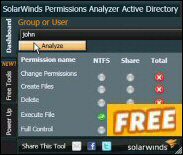Introduction to WSH (Windows Scripting Host)
WSH (Windows Script Host) will become an important player in every network administrator’s team. The best way to get started is by writing simple scripts. Feel free to amend my examples to suit your domain. In fact, discovering what happens when you change a name here or command there, is the classic way to learn how WSH scripts work.
Topic – Simple WSH Script
The purpose of my sample script is to check the version numbers of WSH, VBScript, WMI, and ADSI.
This is what the output of your script will look like. Note the subtle differences in the names of the 4 executables: WSH, VBScript, WMI and ADSI. Check out the part of the script where the major and minor version numbers are joined (concatenated) to echo the final result.

°
Simple Script
Here is a sample script to check your version of WSH and WMI.
‘Script to display WSH, VBScript, WMI, and ADSI versions
‘Script created by Guy Thomas
On Error Resume Next
WScript.Echo "WSH Version: " & WScript.Version
Wscript.Echo "VBScript Version: " & ScriptEngineMajorVersion _
& "." & ScriptEngineMinorVersion
strComputer = "."
Set objWMIService = GetObject("winmgmts:" _
& "{impersonationLevel=impersonate}!\\" & strComputer _
& "\root\cimv2")
Set colWMISettings = objWMIService.ExecQuery _
("Select * from Win32_WMISetting")
For Each objWMISetting in colWMISettings
Wscript.Echo "WMI Version: " & objWMISetting.BuildVersion
Next
Set objShell = CreateObject("WScript.Shell")
strAdsiVersion = _
objShell.RegRead("HKLM\SOFTWARE\Microsoft\Active Setup\Installed Components\{E92B03AB-B707-11d2-9CBD-0000F87A369E}\Version")
If strAdsiVersion = vbEmpty Then
strAdsiVersion = objShell.RegRead("HKLM\SOFTWARE\Microsoft\ADs\Providers\LDAP\")
If strAdsiVersion = vbEmpty Then
strAdsiVersion = "ADSI is not installed."
Else
strAdsiVersion = "2.0"
End If
End If
WScript.Echo "ADSI Version: " & strAdsiVersion
Copy the above script into Notepad
Save with a .vbs extension, e.g. guydemo.vbs.
Double click to execute.
Guy Recommends: Permissions Analyzer – Free Active Directory Tool
I like thePermissions Monitor because it enables me to see quickly WHO has permissions to do WHAT. When you launch this tool it analyzes a users effective NTFS permissions for a specific file or folder, takes into account network share access, then displays the results in a nifty desktop dashboard!
Think of all the frustration that this free utility saves when you are troubleshooting authorization problems for users access to a resource. Give this permissions monitor a try – it’s free!
Download Permissions Analyser – Free Active Directory Tool
Try another script?
The purpose of this script is to add Organizational units and users.
